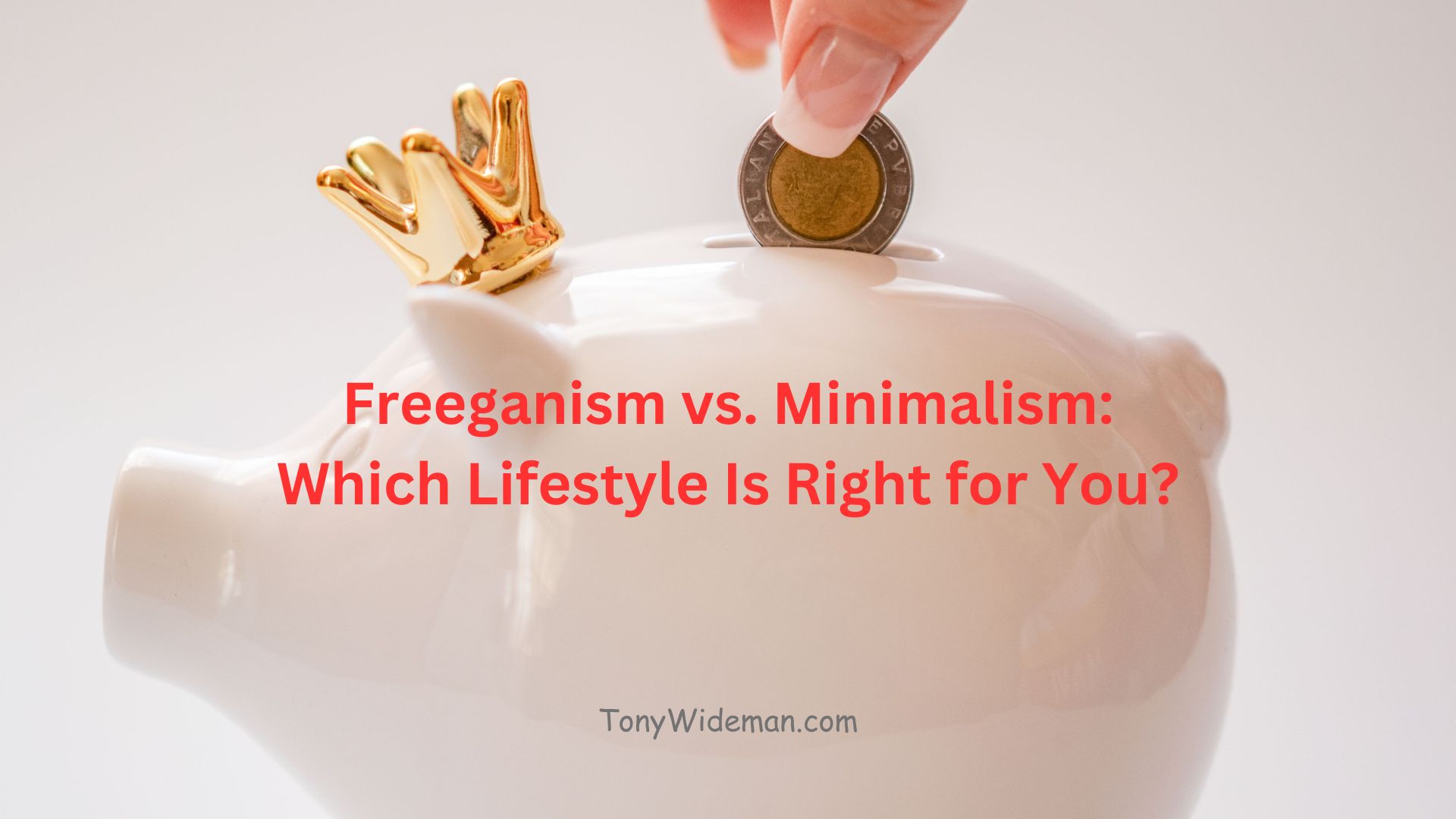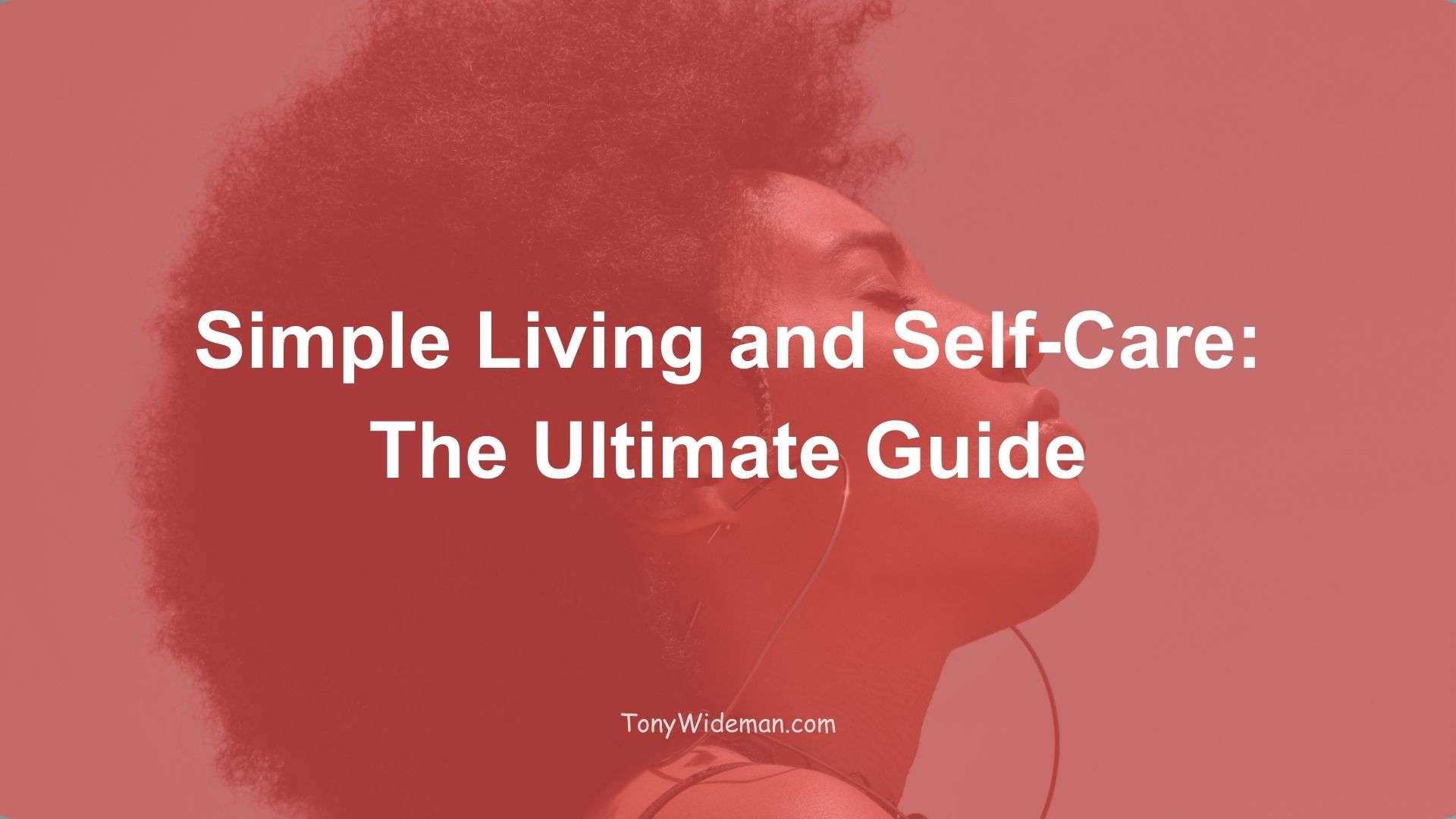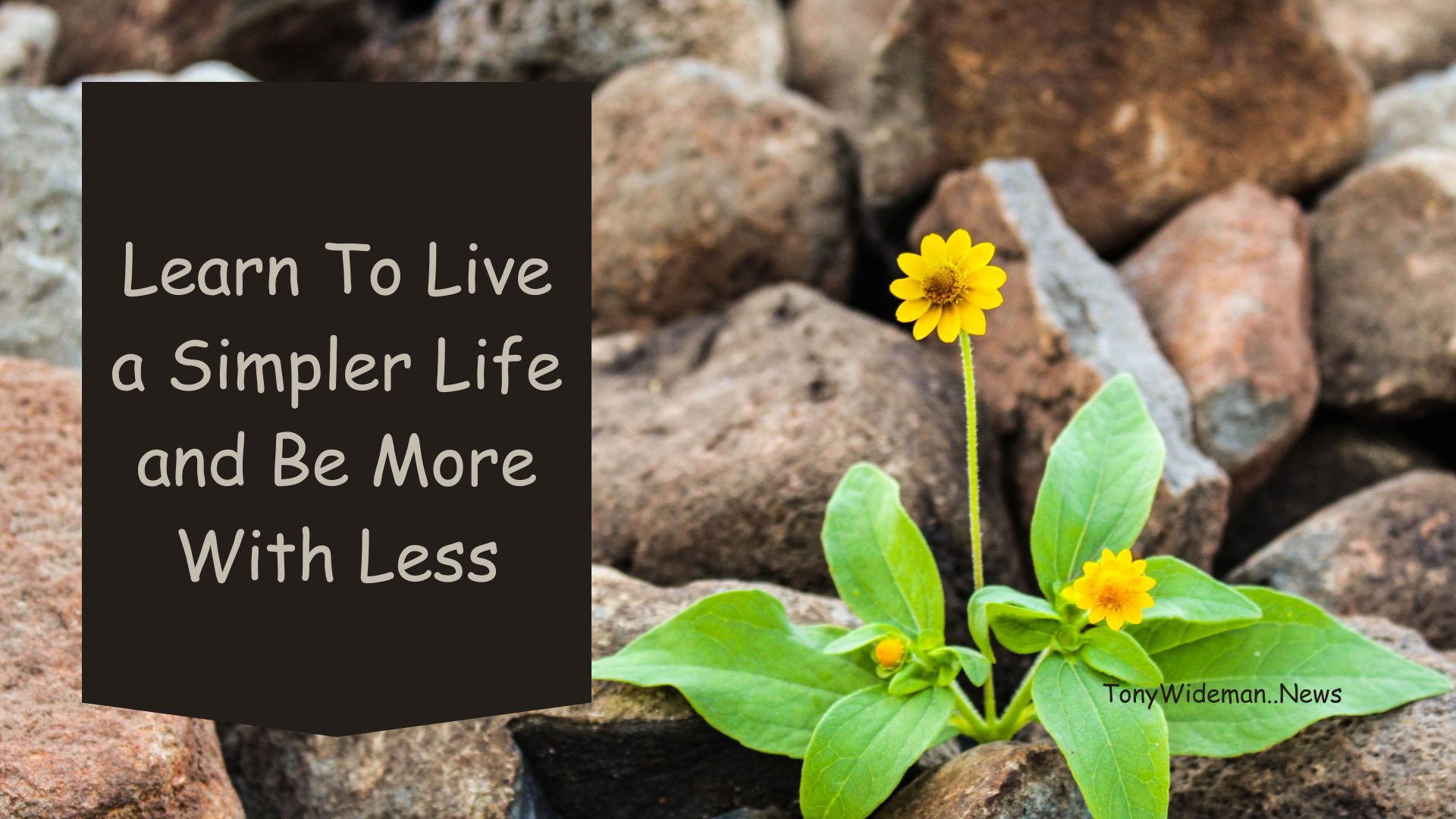Freeganism vs. Minimalism: Which Lifestyle Is Right for You?

People constantly seek ways to simplify their lives, reduce waste, and live more intentionally. Two popular lifestyle choices that have gained momentum in recent years are Freeganism and Minimalism.
Introduction
In today’s world, consumerism and waste have reached unprecedented levels. Freeganism and Minimalism have emerged as two viable alternatives.
The world is changing, and with it, so are our choices for living. Freeganism and Minimalism represent two distinct paths individuals increasingly opt for to escape the consumerist rat race and embrace a more mindful and sustainable way of life.
While both aim to minimize consumption and environmental impact, they are fundamentally different in their approaches and goals. In this post, I will explore the intricacies of Freeganism and Minimalism, helping you determine which lifestyle might fit you.
What Is Freeganism?
The Principles of Freeganism
Freeganism is a lifestyle that revolves around minimizing consumption, particularly regarding food and consumer goods.
Freegans aim to reduce waste and ecological footprint by salvaging discarded items and practicing ethical alternatives.
The core principles of Freeganism include:
- Anti-Consumerism: Rejecting the mainstream consumer culture and its impact on the environment.
- Waste Reduction: Rescuing discarded items and food to prevent them from going to landfills.
- Local and Organic Living: Embracing sustainable living through local and organic choices.
- Community Support: Building and participating in local communities to share resources.
Freeganism is a lifestyle that revolves around minimizing waste and consumption by practicing ethical scavenging and resource sharing.
Freegans advocate for using discarded items primarily to reduce their carbon footprint and avoid contributing to consumer culture.
Benefits of Freeganism
Reduced Environmental Impact
Freegans significantly reduce waste and the demand for new products, which, in turn, minimizes their impact on the environment.
Cost Savings
By embracing freeganism, individuals can save considerable money, obtaining many necessities without spending a dime.
Living the Freegan Lifestyle
Freegans are often seen “dumpster diving” for discarded food and goods and foraging for wild edibles.
They aim to live as much as possible without monetary transactions and frequently engage in communal living. This lifestyle values resourcefulness, sustainability, and ethical consumption.
What Is Minimalism?
The Principles of Minimalism
Conversely, minimalism simplifies life by reducing clutter, material possessions, and unnecessary distractions.
Minimalists focus on what truly matters, aiming to lead more intentional and fulfilling lives.
Minimalism is a lifestyle that focuses on decluttering one’s life from excessive possessions and distractions.
The key principles of Minimalism include:
- Simplicity: Eliminating the superfluous to enhance life’s quality.
- Intentionality: Making deliberate choices about possessions and experiences.
- Mindfulness: Staying present and fully engaging in daily life.
- Quality over Quantity: Preferring a few meaningful items over a surplus of possessions.
Benefits of Minimalism
Clarity and Focus
Minimalists experience improved mental clarity and increased focus as they remove the distractions of excess possessions.
Reduced Stress
A minimalist lifestyle can reduce stress and a sense of peace, as individuals are no longer overwhelmed by material possessions.
Embracing Minimalism in Your Life
Minimalists strive to streamline their homes and digital spaces, focusing on the things and activities that bring them joy and fulfillment.
They frequently use practices like the KonMari method and digital detoxes to achieve a simpler, more purposeful existence.
Benefits of Minimalism
Minimalism can reduce stress, increase focus, and improve mental health. Removing physical and psychological clutter allows individuals to appreciate the present moment, cultivate gratitude, and prioritize personal growth.
Key Differences
While both Freeganism and Minimalism are committed to reducing consumption and waste, their approaches and objectives vary.
Freeganism primarily focuses on sustainable living and communal support, emphasizing salvaging discarded items. Conversely, minimalism revolves around decluttering and simplifying life to enhance mental and emotional well-being.
The Minimalist Way: Quality Over Quantity
Minimalism is a lifestyle that advocates for owning fewer material possessions while focusing on quality, purpose, and intentionality.
It’s about simplifying your life by decluttering and removing unnecessary items, reducing expenses.
Financial Benefits of Minimalism
- Lower Cost of Living: Minimalists embrace the idea of living with less, which naturally reduces their expenses. By cutting back on consumerism and focusing on essentials, they free up resources for other financial goals.
- Savings and Investments: With fewer financial burdens, minimalists are more inclined to save and invest their money wisely. This approach can lead to substantial wealth accumulation over time.
- Increased Financial Security: A minimalist lifestyle encourages the creation of an emergency fund and financial safety nets, providing security in the face of unexpected expenses.
Freeganism: The Art of Zero-Cost Living
Freegans take a radically different approach to life. They minimize their expenses by living off discarded and free resources, often foraging for food, repurposing discarded items, and embracing communal living.
Financial Benefits of Freeganism
- Reduced Cost of Living: Freegans practically eliminate many living expenses, such as groceries and rent, by relying on free resources. This allows for a highly economical lifestyle.
- Low Environmental Impact: By repurposing discarded items and reducing waste, Freegans contribute positively to the environment while saving money.
- Alternative Sources of Income: Some Freegans have turned their alternative lifestyle into a source of income. They may sell repurposed items or offer workshops on sustainable living, creating opportunities for financial gain.
A Side-by-Side Comparison
Now, let’s take a closer look at the financial aspects of both Minimalism and Freeganism:
| Aspect | Minimalism | Freeganism |
|---|---|---|
| Cost of Living | Reduced through conscious spending and decluttering | Minimal, often involving no monetary expenses |
| Savings Potential | High due to reduced consumption and efficient living | High, as many basic needs are met for free |
| Environmental Impact | Positive, with a focus on quality and sustainability | Highly positive due to waste reduction and reuse |
| Income Opportunities | Varied, potentially increased due to financial focus | Diverse, from selling repurposed items to workshops |
Which Lifestyle Is Right for You?
The choice between Freeganism and Minimalism ultimately depends on your values, lifestyle, and goals. Consider what matters most to you—reducing environmental impact and embracing ethical alternatives (Freeganism) or decluttering your life to prioritize mental clarity and personal growth (Minimalism).
Both lifestyles have their merits, so choose the one that aligns with your aspirations and resonates with your core values.
The decision between Minimalism and Freeganism ultimately comes down to your values, goals, and financial situation.
Minimalism offers financial stability through conscious spending, while Freeganism provides a unique opportunity to live frugally and sustainably.
Consider what aligns with your core values, financial objectives, and the lifestyle you’re willing to embrace. Both paths can lead to economic security, but each does so in its distinctive way.
Conclusion
In a world where materialism and waste threaten the environment and our well-being, Freeganism and Minimalism offer compelling alternatives.
Both offer unique benefits and align with different values. Your decision should be a reflection of your personal goals and aspirations. So, which lifestyle is proper for you? It’s a choice only you can make and can be transformative.
Each lifestyle provides a unique path to a more conscious and intentional way of living. You can decide which lifestyle suits you by understanding the principles and benefits.
In conclusion, Freeganism and Minimalism represent a departure from the status quo, offering alternative ways to find meaning and happiness in a world dominated by consumerism.
Whether you embrace Freeganism, Minimalism, or elements of both, your journey towards a simpler, more sustainable, and fulfilling life is entirely in your hands.
FAQs
1. Is Freeganism suitable for everyone?
Freeganism is more accessible to those willing to embrace communal living and ethical alternatives. It may not suit individuals who prioritize traditional consumerism.
2. Can I combine Freeganism and Minimalism?
Certainly! Many people adopt elements of both lifestyles to create a balanced approach that aligns with their values.
3. Are there any health concerns with Freeganism?
While Freegans aim to be resourceful, they must maintain a balanced and nutritious diet, even when salvaging discarded food.
4. How can Minimalism benefit my mental health?
Minimalism can reduce stress, increase focus, and provide clarity by removing physical and mental clutter.
5. How do I get started with Freeganism or Minimalism?
Both lifestyles require a gradual transition. Start by researching and connecting with communities that follow your chosen path for guidance and support.







